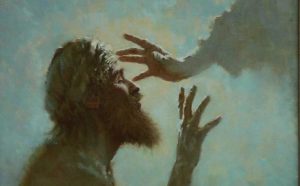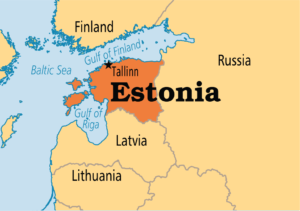Welcome to David’s ‘Adullam Days’.
 Wilhelm Gesenius’ Hebrew and Chaldee Lexicon to the Old Testament Scriptures provide notes supporting Adullam as meaning “a hiding place”. David is on the run from a jealous King Saul who has become obsessed with the idea of killing him. David’s brothers, parents, and a devoted following of those who were in distress, in debt and discontent, join him in a dark cave of Adullam.
Wilhelm Gesenius’ Hebrew and Chaldee Lexicon to the Old Testament Scriptures provide notes supporting Adullam as meaning “a hiding place”. David is on the run from a jealous King Saul who has become obsessed with the idea of killing him. David’s brothers, parents, and a devoted following of those who were in distress, in debt and discontent, join him in a dark cave of Adullam.
The term ‘The Cave of Adullam,’ has been used by political commentators to refer to any small group that has been ousted from power but planning to return.
 David’s ability to motivate and shape these malcontents into a rag-tag army of 400 is a testimony to David’s resourcefulness and his leadership skills.
David’s ability to motivate and shape these malcontents into a rag-tag army of 400 is a testimony to David’s resourcefulness and his leadership skills.
The fighting band of 400 men will eventually number 600 and become known as David’s mighty men (2 Samuel 23:8f). They gather around David, their hero, who himself is an outlaw.
For four to eight years (we don’t know for sure), David would wander in the wilderness as the Despised and Rejected (yet duly anointed) King of Israel. King Saul is still on the Throne, although God has rejected his rule. David and his men would be hunted by Saul. During this time, David would be given opportunities to kill his oppressor. But he respected God’s ways and did not want to force God’s hand in ascending to the throne. He acknowledged God’s sovereign working and would not take Saul’s life unfairly. In 1 Samuel 26:23, he says, “I refused to stretch out my hand against the Lord’s anointed.”
 David commits his parents to the care of the neighboring king of Moab, where they will remain during the period that David was in the hold. The prophet Gad tells David to leave the territory in which he has been seeking refuge and return to his own tribal land of Judah.
David commits his parents to the care of the neighboring king of Moab, where they will remain during the period that David was in the hold. The prophet Gad tells David to leave the territory in which he has been seeking refuge and return to his own tribal land of Judah.
David returns to Judah and makes his new hideout in the forest of Hereth, much the way we imagine Robin Hood operated out from Sherwood Forest.
When Saul hears that David’s whereabouts have been discovered, Saul once again displays his mean-spirited paranoia. He is suspicious that all his former supporters are betraying him or will soon do so. He asserts that he is worthy of his people’s allegiance and can win them personal favors. Yet those who defected from following Saul had done so because of his oppressive rule. In 1 Samuel 22:2, the defectors are described as being in debt (most likely, they owed money due to King Saul’s taxation. They suffered distress and discontent. (The ESV translates ‘discontent’ as being ‘bitter of soul’.) Saul promises commissions, promotions, and career opportunities to all who remain loyal to him. But when Saul orders that Ahimelech and the priests at Nob be killed, only Doeg, the evil Edomite, and herdsman, volunteers to kill them. Saul’s anger is so out of proportion that he also demands that every man, woman, child, infant, and animal in the town of Nob be slain.
 When David is told of this atrocity, he traces it back to his own rash behavior in putting Ahimelech’s life in jeopardy. He feels responsible and tries to make amends.
When David is told of this atrocity, he traces it back to his own rash behavior in putting Ahimelech’s life in jeopardy. He feels responsible and tries to make amends.
1 Samuel 22:22-23 22 Then David said to Abiathar, “I knew on that day, when Doeg the Edomite was there, that he would surely tell Saul. I have brought about the death of every person in your father’s household.
He makes an offer to Abiathar, the sole survivor of Saul’s brutal attack on Ahimelech and the people of Nob.
23 “Stay with me; do not be afraid, for he who seeks my life seeks your life, for you are safe with me.”
Unlike Saul, David sees the importance of knowing and obeying God’s will. He has heeded the counsel of the prophet Gad. He continues to inquire of the Lord. As a result of hearing and believing the Word of God, David has the confidence to fight the Philistines and save the people of Keilah. When his troops are frightened by David’s marching orders, he inquires again, and the Lord promises to give the Philistines into his hand.
Saul discovers that David is defending Keilah. He sends his troops to besiege David and his men. David once again seeks the Lord and inquires to know His mind.
 David is cultivating a habit of seeking God’s wisdom. We have seen him heed the spoken word of the prophet (Gad), representing the objective Word of God through the inspired written Word. We have seen him put his confidence in God’s Word as it is witnessed to his heart by the Holy Spirit. Now we see David make inquiry of the Lord through the mediation of the anointed priest and his ephod. He possibly could have appealed to the priest’s use of the Urim and Thummin stones stored in the breastplate or the casting of lots.
David is cultivating a habit of seeking God’s wisdom. We have seen him heed the spoken word of the prophet (Gad), representing the objective Word of God through the inspired written Word. We have seen him put his confidence in God’s Word as it is witnessed to his heart by the Holy Spirit. Now we see David make inquiry of the Lord through the mediation of the anointed priest and his ephod. He possibly could have appealed to the priest’s use of the Urim and Thummin stones stored in the breastplate or the casting of lots.
You would have thought the people of Keilah would have been grateful that David delivered them from their enemies. However, when inquiring of the Lord, David is warned that unless he leaves Keilah, the people of Keilah will turn on him.
David is learning a lesson. The name ‘Keilah’ means ‘fortress.’ The foundation of our trust must not be the fortresses of men. We must recognize the fallen nature of sinful man. We are not to anchor our trust in other people. Jesus would not commit himself to man because He knew what was in man (John 2:24).
The Lord alone is our fortress.
Psalm 18:2 2 The LORD is my rock and my fortress and my deliverer, My God, my rock, in whom I take refuge; My shield and the horn of my salvation, my stronghold.
David’s army has now grown to 600 men. They flee to the wilderness of Ziph at Horesh. Jonathan meets David there, and they renew their covenant (1 Sam 23:18).
 Jonathan has a vision for David becoming king but presumes that he will be second to him. Sadly, this will not happen.
Jonathan has a vision for David becoming king but presumes that he will be second to him. Sadly, this will not happen.
The Ziphites betray the location of David’s hideout to King Saul. So, David moves to the wilderness of Maon. Saul hears of it and pursues, nearly surrounding David’s army. However, Saul is interrupted by a messenger who redirects him to fight a raiding party of Philistines. David sees the Lord providentially delivering him from harm once again. Consequently, the place where David’s army was being surrounded, is called “the rock of escape.”
David moves on to the strongholds in the wilderness of Engedi located near the Dead Sea.
 The events and emotions that David experiences, during the dark days when he is wandering with his men as a fugitive in the wilderness, become the subject matter of David’s psalms that will foreshadow the sufferings of the Truer and Greater David, the despised and rejected King, the Beloved (David means, ‘Beloved’) of the Father, Jesus Christ.
The events and emotions that David experiences, during the dark days when he is wandering with his men as a fugitive in the wilderness, become the subject matter of David’s psalms that will foreshadow the sufferings of the Truer and Greater David, the despised and rejected King, the Beloved (David means, ‘Beloved’) of the Father, Jesus Christ.
Scholars believe that David is referring to his experience of being surrounded by Saul’s army in the wilderness at Maon when he says, “My God, My God why have you forsaken me?”
1 Samuel 23:26 26 Saul went on one side of the mountain, and David and his men on the other side of the mountain; and David was hurrying to get away from Saul, for Saul and his men were surrounding David and his men to seize them.
David says, “they hated me without a cause” (Psalm 69:4). He is referring to Saul and his men. Jesus refers to this Psalm as a prophecy concerning Himself.
John 15:25 25 “But they have done this to fulfill the word that is written in their Law, ‘THEY HATED ME WITHOUT A CAUSE.’
TODAY’S READING IN THE NEW TESTAMENT
Jesus is addressing the man whom He healed and who was cast out of the temple.
He contrasts the Pharisaical community at the temple with the company of the redeemed who put their trust in Him. The leaders of apostate Judaism are false shepherds (Ezekiel 34), and Israel has become a false vine (Hosea 10:1). Jesus is the true and Good Shepherd (John 10:11) and the true Vine (John 15:1).
The gate represents the requirements of law and the prophets regarding the Christ, the Anointed King, Priest, Prophet, and Judge.
 Jesus is identified as the qualified Messiah. He is the prophesied Good Shepherd described in Ezekiel 34:11 -16:
Jesus is identified as the qualified Messiah. He is the prophesied Good Shepherd described in Ezekiel 34:11 -16:
Ezekiel 34:11-16 11 For thus says the Lord GOD, “Behold, I Myself will search for My sheep and seek them out. 12 “As a shepherd cares for his herd in the day when he is among his scattered sheep, so I will care for My sheep and will deliver them from all the places to which they were scattered on a cloudy and gloomy day. 13 “I will bring them out from the peoples and gather them from the countries and bring them to their own land; and I will feed them on the mountains of Israel, by the streams, and in all the inhabited places of the land. 14 “I will feed them in a good pasture, and their grazing ground will be on the mountain heights of Israel. There they will lie down on good grazing ground and feed in rich pasture on the mountains of Israel. 15 “I will feed My flock and I will lead them to rest,” declares the Lord GOD. 16 “I will seek the lost, bring back the scattered, bind up the broken and strengthen the sick; but the fat and the strong I will destroy. I will feed them with judgment.
The man whom Jesus healed was formerly blind from birth and was a regular attender as a beggar in the temple. Now that he sees clearly and honors his healer, he is perceived as a threat by the religious authorities and is put out of the temple, which Jesus describes as ‘the sheep pen of the false shepherds’. Jesus lets the healed outcast know that he is loved, cared for, and in the company of the Good Shepherd, Himself. Jesus declares that He is the gate to the true sheepfold. He does not pen you up in darkness and legalism. He leads you into good pasture. He has come that you may have life.
The false shepherds of Israel are thieves and robbers. They disregard the witness of the Law and the Prophets to the Good Shepherd. Jesus is the Sovereign Shepherd who calls the sheep by Name.
In saying that He is the Gate, Jesus is using a figure of speech to make clear to the healed blind man that He is the way of salvation.
Jesus wants the excommunicated beggar to know that those who put him out of the temple were thieves, robbers, and murderers, inspired by the god of this age, Satan.
It is a remarkably true phenomenon that sheep do recognize their rightful shepherd’s voice. In the morning, shepherds call their sheep out of the fold, and they assemble before their Shepherd and follow him.
 This Good Shepherd will provide what the sheep need by laying down His life as an atonement for sin. He will not run away from His responsibility as the Good Shepherd, knowing that it will cost His life. His sacrifice is necessary for the salvation of His sheep.
This Good Shepherd will provide what the sheep need by laying down His life as an atonement for sin. He will not run away from His responsibility as the Good Shepherd, knowing that it will cost His life. His sacrifice is necessary for the salvation of His sheep.
In Jesus’ illustration, the sheepfold represents Israel. When Jesus refers to other sheep, He is referring to the Gentiles. They will hear His voice and follow.
Jesus’ unique authority as God the Son is not just that He can raise the dead. He can raise Himself from the dead!
John 10:17-18 17 “For this reason the Father loves Me, because I lay down My life so that I may take it again. 18 “No one has taken it away from Me, but I lay it down on My own initiative. I have authority to lay it down, and I have authority to take it up again. This commandment I received from My Father.”
Some respond to Jesus’ words, saying, “He is demon possessed and raving mad.” Others recognize that Jesus, who opened the eyes of the man born blind, is also opening their eyes to see Who He truly is.
TODAY’S READING IN THE BOOK OF PSALMS
PSALM 115:1-18
The heart of true worshipers is found in Psalm 115:1. In our contemporary culture that is so consumer-driven and ego-flattering, our thoughts are often directed to who we are and our natural preferences.
- True worshipers are occupied with Who God is and what He desires.
- True worshipers seek the glorification of Who God is (His Name) rather than themselves (v.1).
- True worshipers will recognize and give thanks for God’s love and faithfulness (v. 2).
- True worshipers will recognize God’s sovereignty over all! “He does whatever pleases Him” (v. 3).
- True worshipers will not make idols for themselves (v.4-7).
We become like what we worship (v.8). Are we becoming more like Christ? Are we being actively conformed to His image or images that are fashioned by our deceitful hearts or wayward culture?
The Lord will bless those who trust in Him. The Psalmist exhorts the house of His covenant people to continue to trust Him. He calls upon the royal priesthood to recognize Him as their help and shield and not turn to those who make idle claims as potential deliverers and saviors.
Be thankful for where and why our God has sovereignly placed you on earth! (v.16).
You are to glorify and praise Him forever! (v.18)
TODAY’S READING FROM THE BOOK OF PROVERBS
A call for a Holy Spirit controlled temperament of diligence and anger-management
Proverbs 15:18-19 18 A hot-tempered man stirs up strife, But the slow to anger calms a dispute. 19 The way of the lazy is as a hedge of thorns, But the path of the upright is a highway.
PRAY FOR THE NATIONS
Estonia
Europe
Geography
Area: 45,215 sq. km
Northernmost of the three Baltic states. Separated from Finland to the north by the Gulf of Finland.
Population: 1,339,459 Annual Growth: -0.11%
Capital: Tallinn
Urbanites: 69.5%
HDI Rank: 40 of 182 (UN Human Development Reports 2009)
Peoples
Peoples: 37 (16% unreached) All peoples
Unreached Peoples Prayer Card
Official language: Estonian; Russian is still common Languages: 18 All languages
Religion
Largest Religion: Non-religious
|
Religion |
Pop % |
Ann Gr |
|
|
Christians |
606,775 |
45.30 |
-1.4 |
|
Evangelicals |
65,726 |
4.9 |
0.5 |
|
Non-religious |
723,308 |
54.00 |
|
Challenges for Prayer
Despite a Protestant heritage, genuine faith in Estonia is rare. Many have limited Christian belief, but very few follow Jesus in any meaningful way. Most of the population needs to be re-evangelized. Young people have little to equip them against the predations of post-Christian values, since the traditional Christian confessions are weak and in decline. Pray for a new vision for evangelism and revival to reawaken the nominal majority.
Unity in the Church is a potentially powerful witness to a cynical population. The Estonian Evangelical Alliance seeks to foster unity in diversity among many denominations through fellowship and prayer events. Pray that all of Christ’s faithful would demonstrate Christ’s love for one another.
PRAYER: Thank you, Lord, for reminding us that You are our fortress. You understand our ways and are with us, even in our wilderness wanderings. Through the Adullam days of our difficulties we identify with the heart cries of the Psalmist that reflect the sufferings of our truer and Greater David, the Lord Jesus Christ. He is our only trustworthy Rock, our only trustworthy Fortress and Help. He is the Good Shepherd who laid down His life so we who were dead in our sins could come alive, hear His voice and follow Him into our promised inheritance, the green pastures of our salvation.
We pray for the people of Estonia and the Baltic States. May more people know the transformative power of the gospel. The people of Estonia are known for their singing. May they sing your praises!
Pastor David

